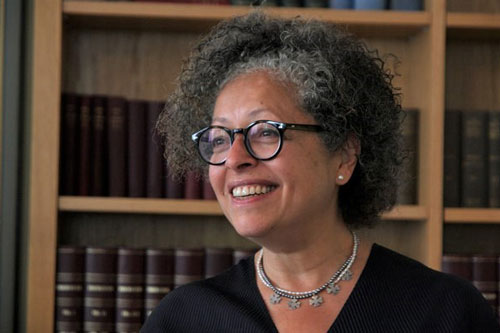Being uncertain might make you a better leader
The effect of uncertainty on our self-confidence
Feeling unsure in the midst of uncertainty doesn't make you a fraud or an impostor.
We have an inbuilt aversion to uncertainty and ambiguity. An aversion that is being tested to the limit in a radically unpredictable world. Reframing the adversities we experience in our lives can sometimes be a valuable source for growth and for learning, building our capacity for optimism, resilience and hope.

As an executive coach and a consultant for the Bayes Centre for Charity Effectiveness (CCE), I speak to corporate and charity leaders on a daily basis. Many leaders have expressed that sitting with ‘not knowing’ and the understandable anxieties of a largely unpredictable and unknowable future is hugely unsettling. If we experience these discomforts as a personal failing or regard them as a failure of competent leadership, the effect on our self-belief and self-confidence becomes corrosive.
Feeling like an impostor vs over-confidence
The systemic barriers and biases experienced by many women leaders, by leaders from marginalised and minoritised communities no doubt play a part in fuelling and exacerbating feelings of self-doubt and feeling like an impostor.
As many have observed, the model of leadership as Eurocentric, heroically over-confident, masculine and heteronormative, remains entrenched in our culture and our psyches and it continues to pervade our institutions. Confidence is routinely mistaken for competence (Chamorro-Premuzic, 2013), just as arrogant omniscience may be falsely interpreted as clarity of vision.
The need for self-doubt
Organisations in the charity sector all too often persist in valuing individualism above collective endeavour and conflating overwork with selfless commitment. Taken together, these prevailing assumptions and biases may militate against healthy self-doubt and the need to encounter the reality of our external environment in all its uncertainty, unpredictability and complexity.
The poet John Keats coined the term negative capability to describe the ability to sit with uncertainties and with ‘not knowing’ in a state of equanimity. This seemingly paradoxical attitude of acceptance of what is and openness to might lie beyond our immediate understanding, can also be regarded as a precursor to creativity and learning.
The practical, political and emotional pressures on us to know are only constant and irresistible (French and Simpson, 2000). These pressures can drive us into defensive habits that hold our anxieties, our experience of disorientation, panic and terror of not knowing at bay. At the same time, the defences limit the possibility of responding constructively to uncertainty, with imaginative openness, receptive to multiple elements of reality, and to new learning.
In radically uncertain times, preconceptions, pre-planning and decisive action may largely serve to abate anxieties, rather than progressing the organisations that we lead. This is not to argue that we should practice wilful ignorance or turn our backs on what we do know. Rather, it is to suggest that we foster an attitude of humility and healthy self-doubt.
Befriending ignorance to become better leaders
We must befriend our ignorance and embrace an entirely different model of leadership that enhances the capacity to be present, to cultivate the practices of listening and waiting, to refrain from directing and doing, from intervening too readily, and being prepared. Instead, we should leave space for new ideas to be discovered, rather than to rely automatically on what is already known, remembered or desired (Simpson and French, 2006).
Resisting the pressure to invoke prior knowledge that no longer applies and resisting to adopt new certainties too quickly runs counter to the demands and expectations of leaders.
Yet to embrace not knowing, to encourage ‘reflective inaction’, to meet each moment of ambiguity and uncertainty as we encounter it, to tolerate unpredictability and complexity, to accept healthy self-doubt in response to the unknowable— these may be the leadership capacities to nurture and value!
My colleague Dr Charlotte Sills, a psychotherapist and coach, wrote that the very leaders who daily meet the unexpected with curiosity and energy deserve our admiration. If you’re one of those who consequently ends up feeling like an impostor, then she exhorts you to celebrate!
With thanks to my colleagues Dr Judith Bell and Dr Charlotte Sills.
Tammy Tawadros July 2022, all rights reserved.
Tammy Tawadros is an executive coach, a Bayes Centre for Charity Effectiveness (CCE) organisational consultant and work psychologist with many years’ experience of design and delivery of a broad range of leadership, organisational development and culture change initiatives. She also co-leads CCE's Aspiring Chief Executives programme and New Chief Executives programme.

She has received support from the Bayes Knowledge Exchange and Impact Fund to create the ‘Building the road as We Walk’ research project, the findings of which will be published this autumn as an online resource for nonprofit sector leaders to address how they may lead and implement their strategic work in uncertain times.
Read Tammy's blog on living and leading in uncertain times, or her blog on earned resilience and learned optimism.